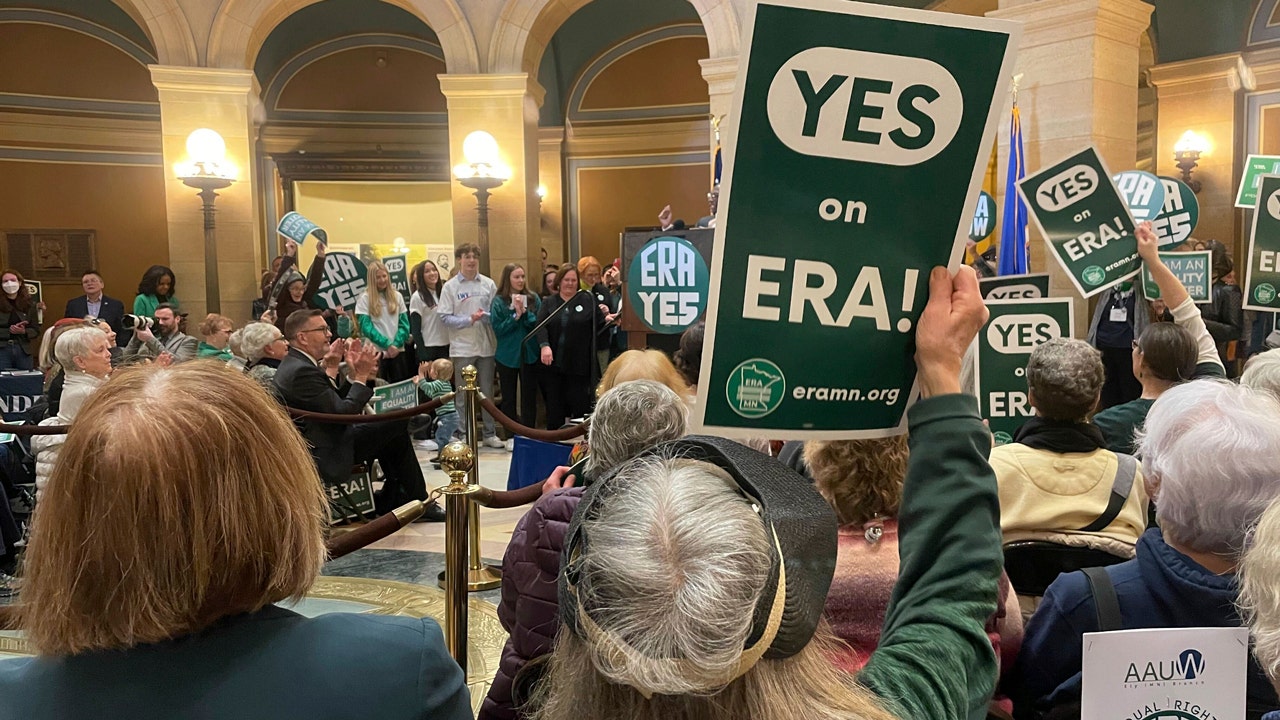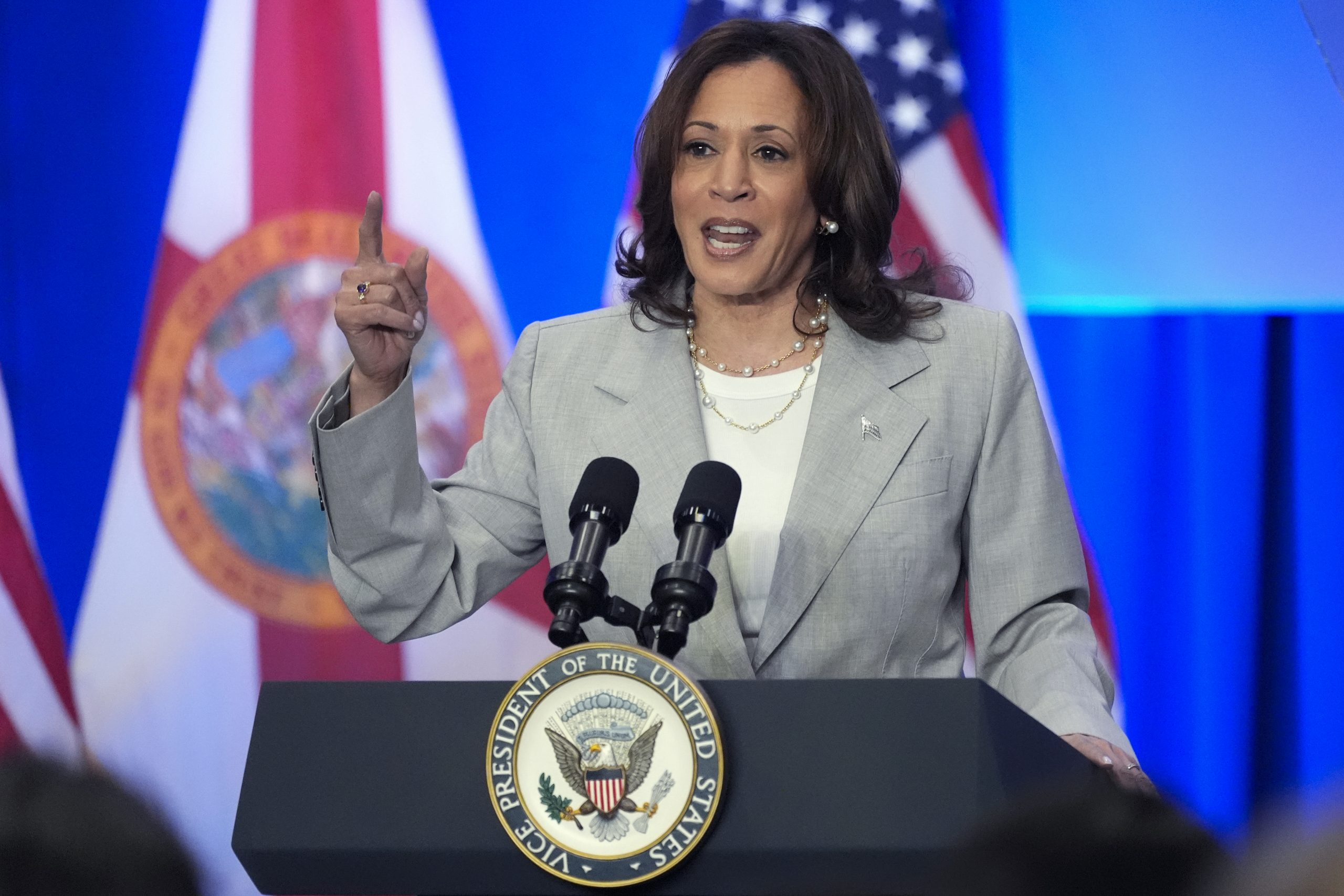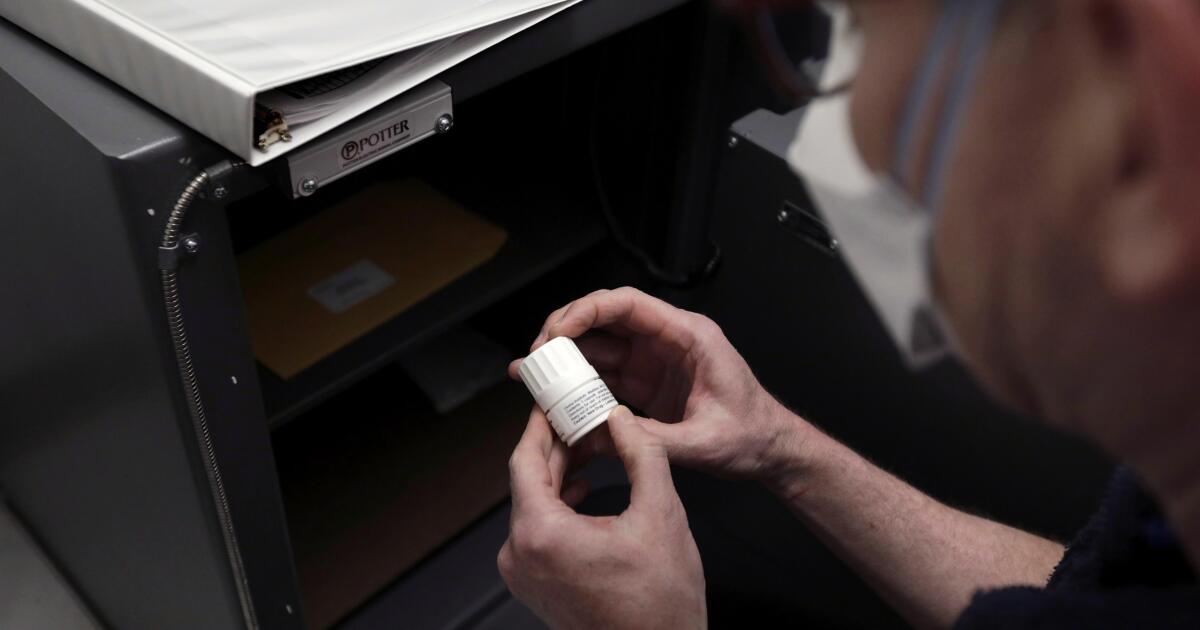Midwest
Minneapolis ordinance imposes highest minimum cigarette price in America

Smokers in Minneapolis will pay some of the highest cigarette prices in the country after the City Council voted unanimously Thursday to impose a minimum retail price of $15 per pack to promote public health.
The ordinance not only sets a floor price. It prevents smokers and retailers from getting around it by prohibiting price discounts and coupons, which several tobacco companies circulate online to lure customers and reinforce brand loyalty. The minimum price also applies to four-packs of cigars. Distribution of free samples is prohibited.
Consumer prices are expected to run even higher after taxes are figured in. While retailers will get to keep the extra money paid by smokers, the higher prices are expected to snuff out at least some of their sales. E-cigarettes, which have grown in popularity, were left out because their prices vary too widely.
BRITISH PARLIAMENT VOTES TO BAN SMOKING FOR ALL PEOPLE BORN AFTER 2009
The minimum price will be effective as soon as Mayor Jacob Frey signs the measure, which he’s expected to do within the next few days.
Evalyn Carbrey, a senior public health specialist with the city, said at a committee hearing last week that staff research indicates that Minneapolis’ minimum will be the highest in the country. Staff determined that cigarettes typically had been selling in Minneapolis for $11 to $13.50 a pack. The change puts Minneapolis ahead of New York City, which set its minimum at $13 in 2018.
This July 29, 2013, photo shows a case of freshly-stamped Marlboro cigarette cartons at M. Amundson Cigar & Candy Co. in Minneapolis. Smokers in Minneapolis will pay some of the highest cigarette prices in the country after the City Council voted unanimously Thursday, April 25, 2024 to impose a minimum retail price of $15 per pack to promote public health. (Mark Zdechlik/Minnesota Public Radio via AP, file)
“I’m excited that this council is taking this public health crisis seriously because that’s what it is,” said the author of the ordinance, Council Member LaTrisha Vetaw.
Council President Andrea Jenkins said the price of cigarettes was one reason why she quit smoking eight years ago, and that she hopes the new minimum will encourage more people to stop or never start.
“If you travel around the country, New York City — you can’t buy your pack of cigarettes for under $18. Chicago, $17. Some places, Los Angeles, I think they’re up to 20 bucks,” Jenkins said.
Penalties will range from a $500 fine for a first violation to license suspensions and revocations for repeat offenders.
“If it helps even one person stop using tobacco, one person use less tobacco, or one person stopped from starting tobacco use, that’s worth it to me,” Council Member Linea Palmisano said. “I know it’s easy for me to sit up here and say that, as a nonsmoker, but it’s the truth. The only way we’re going to break our dependence on tobacco is if we make some really hard changes.”
Read the full article from Here

Midwest
Minnesota lawmakers debate constitutional amendment to protect abortion and LGBTQ rights

Minnesota lawmakers launched their debate Monday on far-reaching legislation to amend the constitution to protect abortion and LGBTQ rights.
The Minnesota Equal Rights Amendment would be among the nation’s most expansive protections of abortion and LGBTQ rights if it is approved by lawmakers this session and then by voters on the 2026 ballot.
MINNESOTA LAWMAKERS INITIATE DEBATE ON PHYSICIAN-ASSISTED SUICIDE BILL
Over 100 people crammed into the legislative hearing room Monday. Supporters wore green clothes and buttons that said “ERA YES” while opponents wore bright red shirts that said “NO CONSTITUTIONAL AMENDMENT to kill unborn babies.”
Betty Folliard, whose group ERA Minnesota has been pushing for such a measure since 2014, testified in support, as did members of Gender Justice — an advocacy organization for gender equity — and OutFront Minnesota, an LGBTQ+ advocacy group.
A green sign that says “YES on ERA!” is held by a supporter of the proposed Minnesota Equal Rights Amendment at the Minnesota Capitol building in St. Paul, Minn., Feb. 12, 2024. The proposal would be among the most expansive protections of abortion rights and LGBTQ rights in the nation if it is approved by lawmakers this session and then by Minnesota voters on the 2026 ballot. (AP Photo/Trisha Ahmed)
“This isn’t just about reproductive justice,” Folliard said in an interview. “It’s also about pay inequity, historic stereotypes and discrimination that keep on being overlooked, generation to generation to generation.”
The amendment’s wording would prohibit the state from discriminating against anyone on the basis of race, color, national origin, ancestry, disability or sex — including gender identity, gender expression and sexual orientation. The state also couldn’t discriminate over a person “making and effectuating decisions about all matters relating to one’s own pregnancy or decision whether to become or remain pregnant.”
Minnesota already has a non-discrimination law, the Human Rights Act, that applies to individuals, businesses, schools and other institutions. The constitutional amendment would apply to state government, and would protect certain laws — including recent ones that have made Minnesota a refuge for out-of-state people seeking an abortion and gender-affirming care — from being repealed by future lawmakers and administrations.
Carrena Falls testified in opposition. She said she’s a college student in the Twin Cities who is “repulsed” by the proposal, which would “enshrine a radical abortion agenda into our Constitution.”
Others who testified against the proposal included members of Minnesota Family Council, a Christian advocacy group; Minnesota Citizens Concerned for Life, an anti-abortion group; and Minnesota Catholic Conference, a policy organization for the Catholic Church.
Rebecca Delahunt, director of public policy at Minnesota Family Council, said she’s concerned the ERA would grant children a constitutional right to gender-affirming care.
Republican House Minority Leader Lisa Demuth said she is “very disappointed” that Democrats developed the proposal without Republican input. Her motion to submit the proposal to questioning in other House committees failed along party lines.
Democrat House Majority Leader Jamie Long’s motion advancing the proposal to the House floor succeeded with a 9-5 vote along party lines.
“These rights are so incredibly important,” Long said. “We know that Legislatures can change, and we know the courts can change. But the Constitution is the one thing that we know will stay in effect.”
If approved by the Legislature, voters in 2026 would be asked: “Shall the Minnesota Constitution be amended to say that all persons shall be guaranteed equal rights under the laws of this state, and shall not be discriminated against on account of race, color, national origin, ancestry, disability, or sex, including pregnancy, gender, and sexual orientation?”
If approved, the amendment would take effect on Jan. 1, 2027.
Last year, a different Minnesota ERA proposal passed in the Senate but did not get a final vote in the House.
Democratic Rep. Kaohly Vang Her, a chief author of both proposals, said several Democrats wanted the ERA to do more to protect transgender and reproductive rights. She said recent attacks on transgender people and the Supreme Court’s overturning of Roe v. Wade by the U.S. Supreme Court have been top of mind for many Democrats.
Democrats have only narrow majorities — their margin is just one vote in the Senate — so they need the support of most in their party if Republicans oppose the legislation. If placed on the ballot, the constitutional amendment would need to be approved by a majority of all voters casting ballots, not just a majority of those voting on the question.
Read the full article from Here
Detroit, MI
VP Kamala Harris touts domestic EV initiatives in Detroit – WDET 101.9 FM

With the economy a key issue in the ongoing presidential campaigns and Michigan an electoral swing state, the major party contenders and their surrogates are repeatedly touting their policy initiatives to voters in the Wolverine state.
That includes Vice President Kamala Harris, who is on what the White House calls an “Economic Opportunity Tour” of states nationwide.
Harris told a packed house at Detroit’s Charles H. Wright Museum of African American History that the Biden Administration is increasing its investment in one of its signature goals, increasing domestic electric vehicle supply chains.
Critics like former President Donald Trump regularly complain the push for electric vehicles will cost U.S. autoworkers their jobs and force consumers into buying less-expensive EVs made by Chinese manufacturers.
But Harris says the Biden Administration is providing more than $100 million specifically to help re-tool U.S. factories and train workers in electric vehicle technology.
“This investment will help to keep our auto supply chains here in America,” Harris said. “(That) strengthens America’s economy overall and (will) keep those jobs here in Detroit.”
Trump warns of decaying economy, vows to “save” auto industry at Michigan rally »
Energy Secretary and former Michigan Governor Jennifer Granholm added that the Biden Administration has targeted infrastructure funds to help ensure there are enough charging stations for those driving an electric vehicle.
The result, Granholm predicted, will be a supply chain that delivers profits for small business owners in Michigan and avoids any reliance on China.
“We’re pulling that back. In Michigan you’re seeing all of these battery suppliers creating all of the components of that battery pack being made inside of Michigan. It’s super exciting. And that means more good-paying jobs,” Granholm said.
President Biden talks electric vehicles at the Detroit Auto Show »
Harris also used her visit to the majority-African American city of Detroit to try and firm-up support in the Black community.
The Vice President told the crowd at the Wright Museum that the current White House has the backs of Black voters. She said the Biden Administration is aiding African Americans in everything from building wealth and good credit scores to forgiving student loan debt.
“Since taking office we have seen record Black small business growth,” Harris said. “We have created more than 2.5 million new jobs for black workers. And since 2019, Black wealth is up 60 percent. President Biden and I are clear: These are not only our accomplishments, they are yours.”
While Detroit remains a Democratic bastion, Michigan is still a political battleground, part of the so-called “Blue Wall” of midwestern states Biden likely needs to win to retain the White House.
Michigan is commanding attention from both major presidential contenders. Trump held a rally at an airport hangar in Saginaw County last week and is scheduled to headline a conservative organization’s upcoming convention in Detroit. Biden is set to address the Detroit branch of the NAACP on May 19.
Trusted, accurate, up-to-date.
WDET strives to make our journalism accessible to everyone. As a public media institution, we maintain our journalistic integrity through independent support from readers like you. If you value WDET as your source of news, music and conversation, please make a gift today.
Donate today »
Milwaukee, WI
Historic Preservation Commission will discuss Calvary Cemetery gatehouse repairs
Anyone driving part the blue Gothic Revival gatehouse at Calvary Cemetery – resting place of Milwaukee founder Solomon Juneau and many other notables – can attest to its sorry state.
But now, the wood frame structure, built in 1897 to designs by Erhard Brielmaier – architect of many Catholic buildings in the city, including Basilica of St. Josaphat and the now-demolished Sisters of St. Francis of Assisi in St. Francis, among others – may get a lifeline.
On Monday, May 13 at 3 p.m. at City Hall, the City of Milwaukee’s Historic Preservation Commission will discuss a plan by the Archdiocese to stabilize the structure at 5503 W. Bluemound Rd.
The plan calls for replacing the leaking roof and flashing; boarding up the doors and windows to secure the gatehouse; supporting and boarding up the screen porch area to keep out vandals and animals; winterizing the plumbing and heating; tuckpointing masonry as required and replacing missing masonry; replacing rotted downspouts that have been causing damage; and somewhat more vaguely, repair, “or rebuilding of building elements to prevent further deterioration or damage.”
The proposed work is to be done by Kelmann Restoration.
The gatehouse – which was not yet built when Juneau’s body was interred at Calvary in 1866 – is built over the main entrance to the cemetery and served as the cemetery office.
It also has an attached residence for a cemetery groundskeeper and his family. The wood structure atop a raised stone foundation is capped with a bell tower.
“According to newspapers from 1897, ‘the residence consists of two stories and a basement. The basement is planned for store rooms and a laundry. On the first floor are offices, waiting rooms, and two private parlors. The second floor will contain three bedrooms’,” notes the Wisconsin Historical Society’s Architectural Inventory.
“After it was expanded, an additional room was added to the second floor. Currently, only the enclosed porch and the recently updated kitchen are used by the workmen of the cemetery. The first and second floors remain intact, though some carpet has been added. Almost all the original hardware, floors, and moldings are in place.”
Brielmaier, who was born in 1841 in Neufra near Rottweil, Württemberg, Germany, emigrated to the United States with his mother and siblings in 1850 to join his father, a carpenter, in Ohio.
Married in 1860, Brielmaier and his wife, Theresia Haag, moved their 13 children to Milwaukee in 1873 and he worked as a carpenter and sculptor, eventually becoming an architect.
With three of his sons, he launched Erhard Brielmaier & Sons Co., Architects, and in addition to churches and convents, they designed universities (including at Marquette), schools and hospitals (including at the Mayo Clinic) around the U.S. and in Canada. The firm even had a second office in Chicago.
The gatehouse is among Brielmaier’s most recognizable projects in Milwaukee. Let’s hope this new work helps keep it standing long into the future.
-

 Politics1 week ago
Politics1 week agoGOP Rep. Bill Posey won't seek re-election, endorses former Florida Senate President as replacement
-

 World1 week ago
World1 week agoRussian forces gained partial control of Donetsk's Ocheretyne town
-
Movie Reviews1 week ago
Challengers Movie Review
-

 Politics1 week ago
Politics1 week agoHouse Republicans brace for spring legislative sprint with one less GOP vote
-

 World1 week ago
World1 week agoAt least four dead in US after dozens of tornadoes rip through Oklahoma
-

 Politics1 week ago
Politics1 week agoWashington chooses its wars; Ukraine and Israel have made the cut despite opposition on right and left
-

 Politics1 week ago
Politics1 week agoDems disagree on whether party has antisemitism problem
-

 Politics1 week ago
Politics1 week agoAnti-Trump DA's no-show at debate leaves challenger facing off against empty podium













